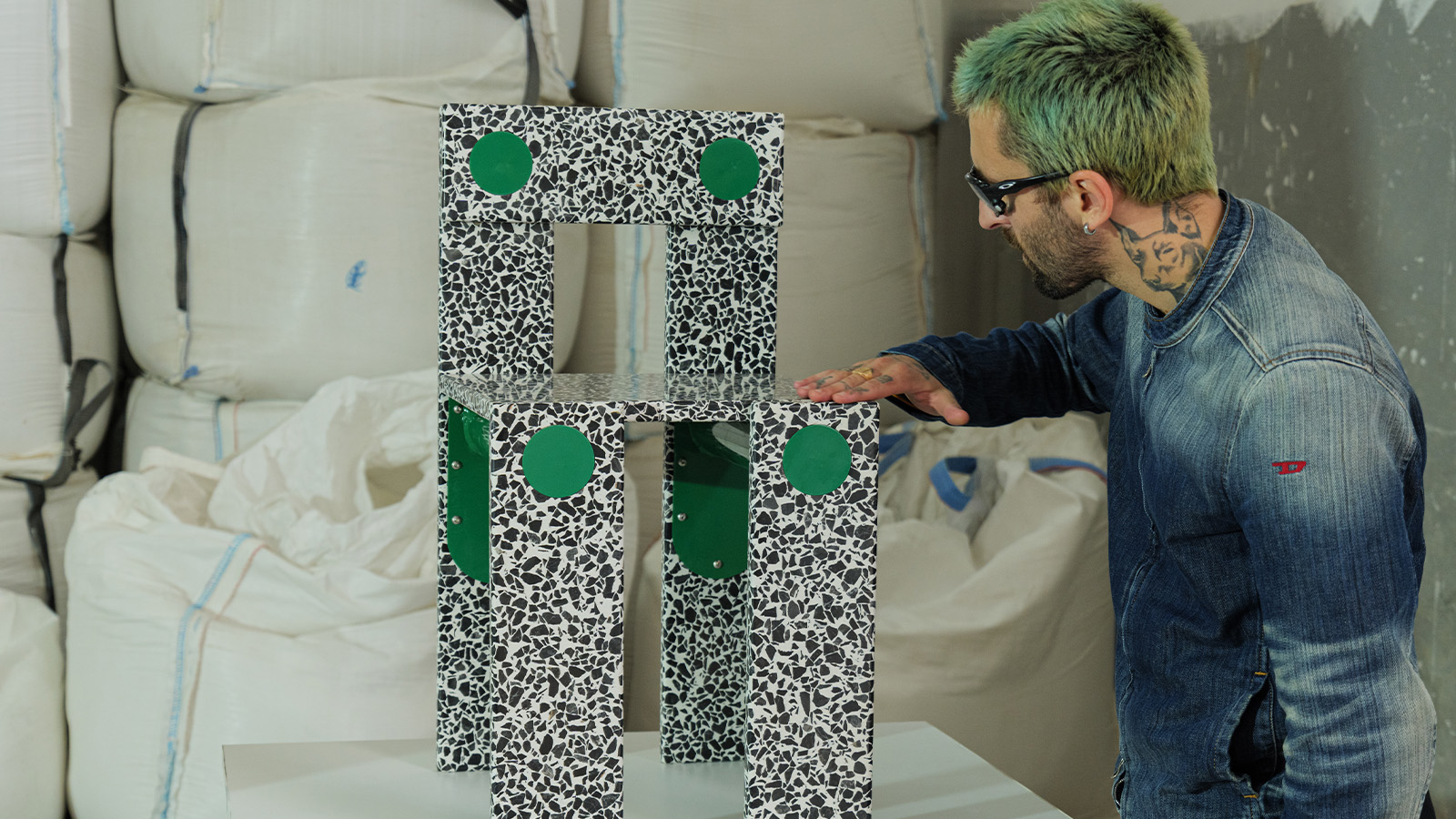
Centuries-old tile-manufacturing is kept alive today at Mosaic Factory’s vast plants near Tangier, where armies of highly skilled craftspeople fabricate its zellige, terracotta and terrazzo tiles. Founded in 2002, the company has not only tapped into this resource but collaborates with contemporary designers, some of whom relish channelling its traditional, hand-crafted aesthetic.
Dubai-based architecture and interior design practice Verhaal has recently collaborated with the firm to create its ‘Jawhara’ collection of zellige tiles, whose delicate, linear motifs are painstakingly hand-chiselled, a uniquely Moroccan technique. Mosaic Factory’s zellige tiles are made of unrefined clay sourced near Fez, cut into a selection of simple shapes, sun-dried, fired and glazed in one of 88 colours.
Mosaic Factory x Zyva furniture collection
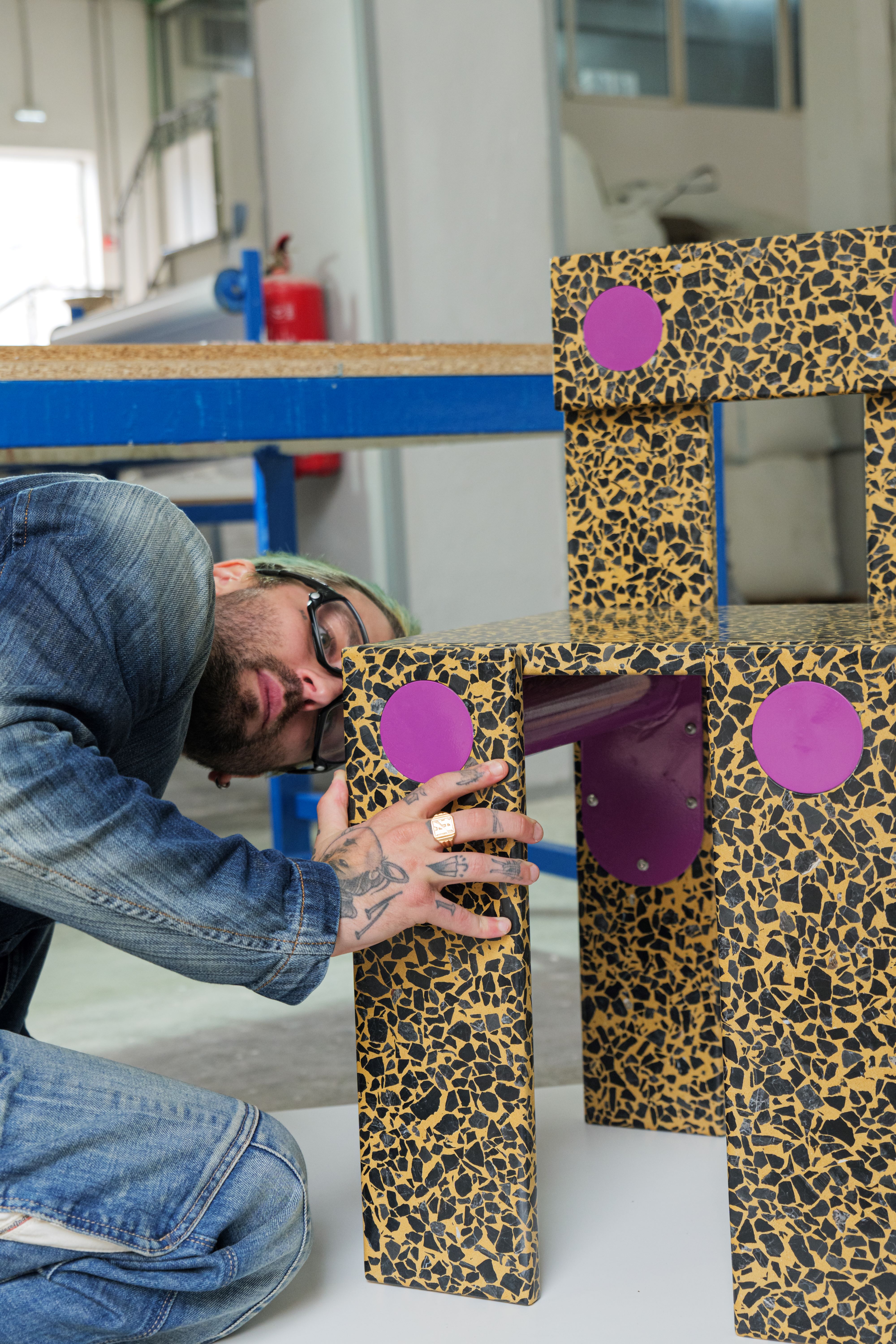
By contrast, French architectural designer Anthony Authié, founder of Paris-based Zyva Studio, has exploited the punchy patterns of terrazzo to dream up the comparatively artificial-looking, ultra-pop Mosaic Factory x Zyva furniture collection. Authié, who spent much of his youth in Biarritz, enjoying the freewheeling life of a surf dude, dyes his hair neo-punk fluoro green, while creating commensurately flamboyant interiors and products.
The new collection – a chair, a table, a stool, a coffee table and lamp – will be unveiled at Maison & Objet in January 2025. Mosaic Factory presented the chair alone this month at Dubai fair Downtown Design as well as the ‘Jawhara’ tiles.
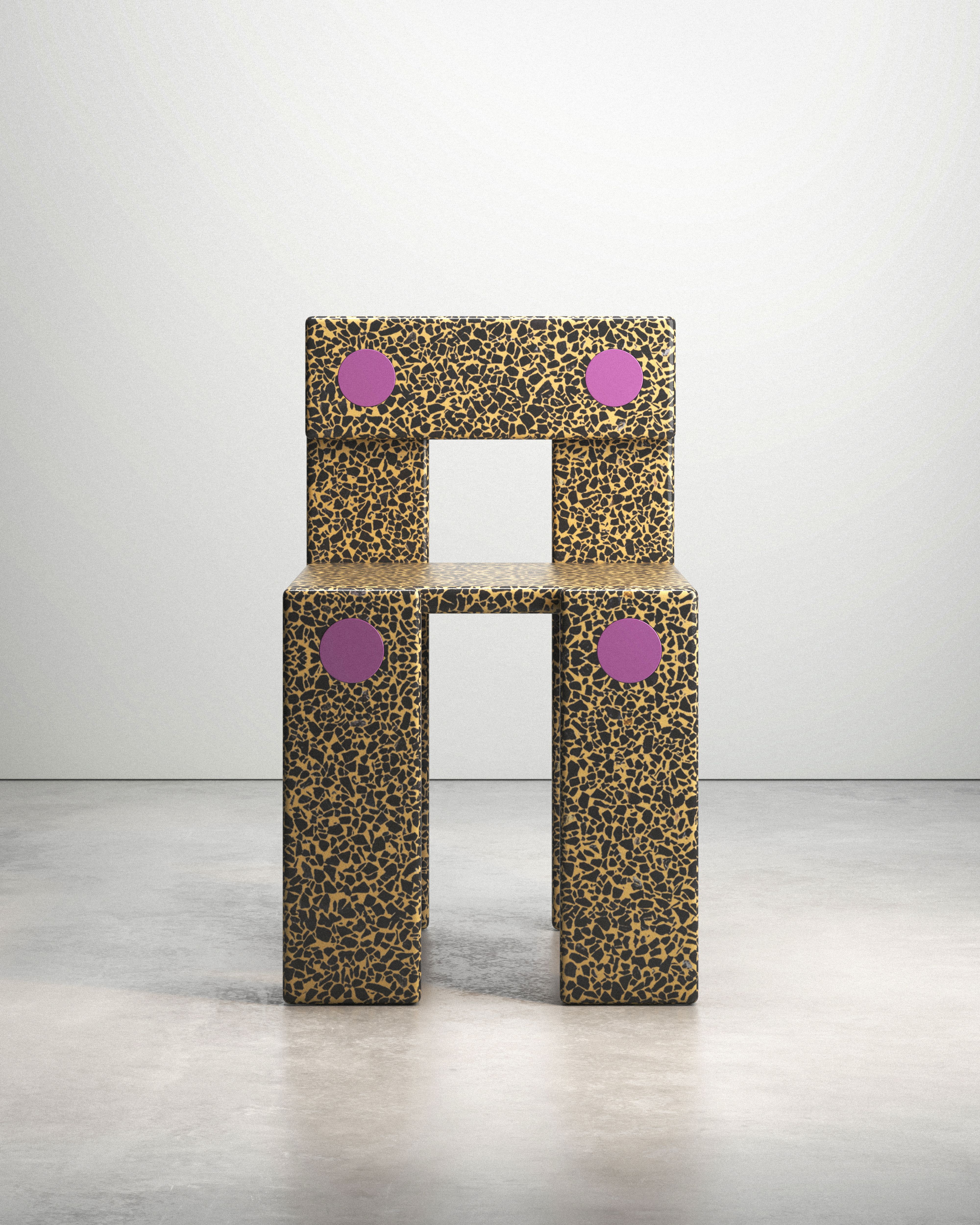
Mosaic Factory’s terrazzo tiles and slabs are available in myriad designs. In some, the marble chips are randomly embedded in their cement or granito base, recalling confetti on a pavement or tutti-frutti ice cream. Authié chose a specific terrazzo called M10, whose crowded, busy mass of relatively small chips resembles white noise flickering on TV screens.
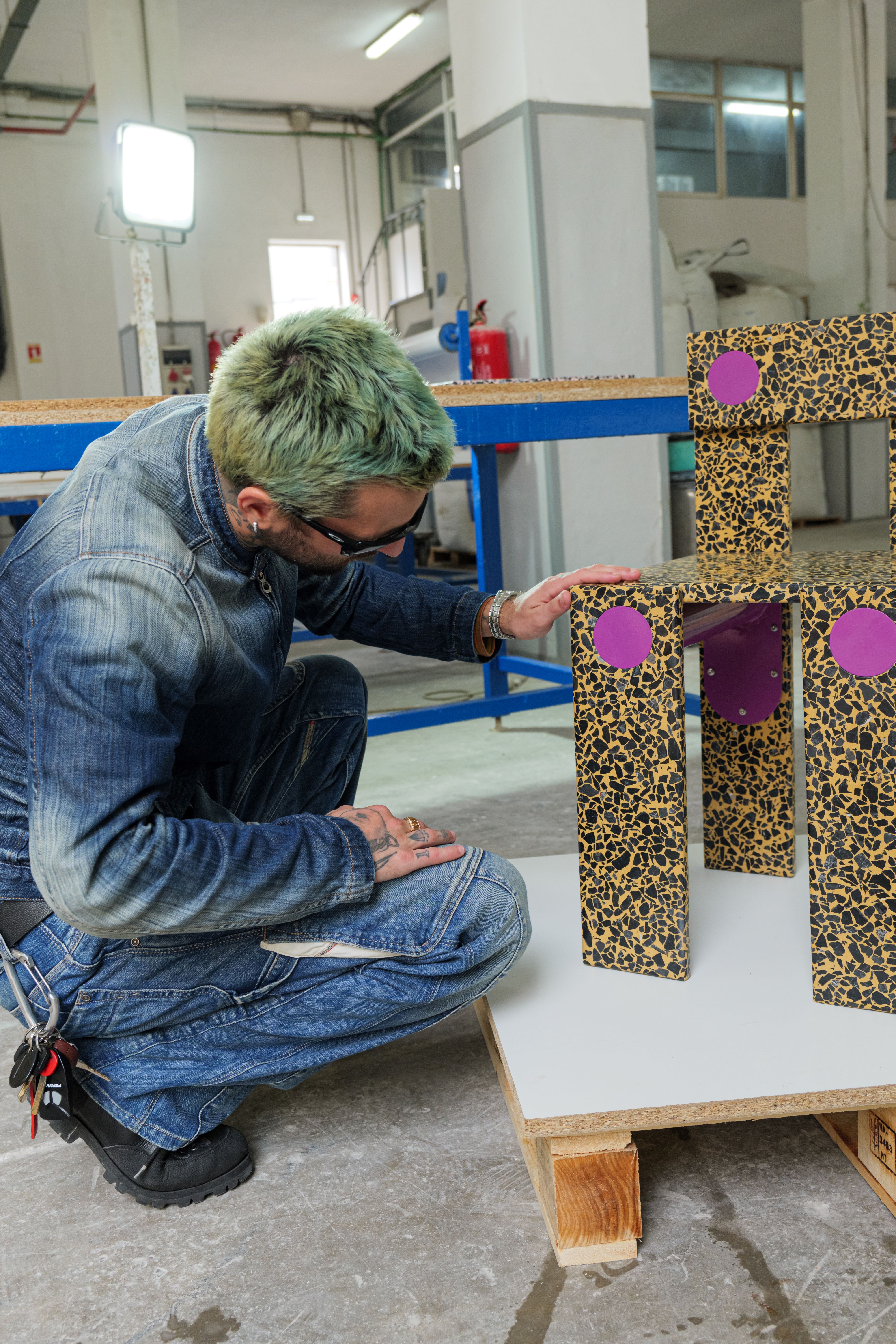
The collection’s intersecting terrazzo slabs and metal components inevitably recall Memphis furniture, which was often fashioned from plastic laminates jazzed up with graphic terrazzo patterns. Authié says he was inspired by 'cartoons from the 1990s and 2000s', although when asked for examples he cites older classics, from Looney Tunes duo Road Runner and Wile E Coyote, popular from the 1950s, to 1980s animated TV series Inspector Gadget.
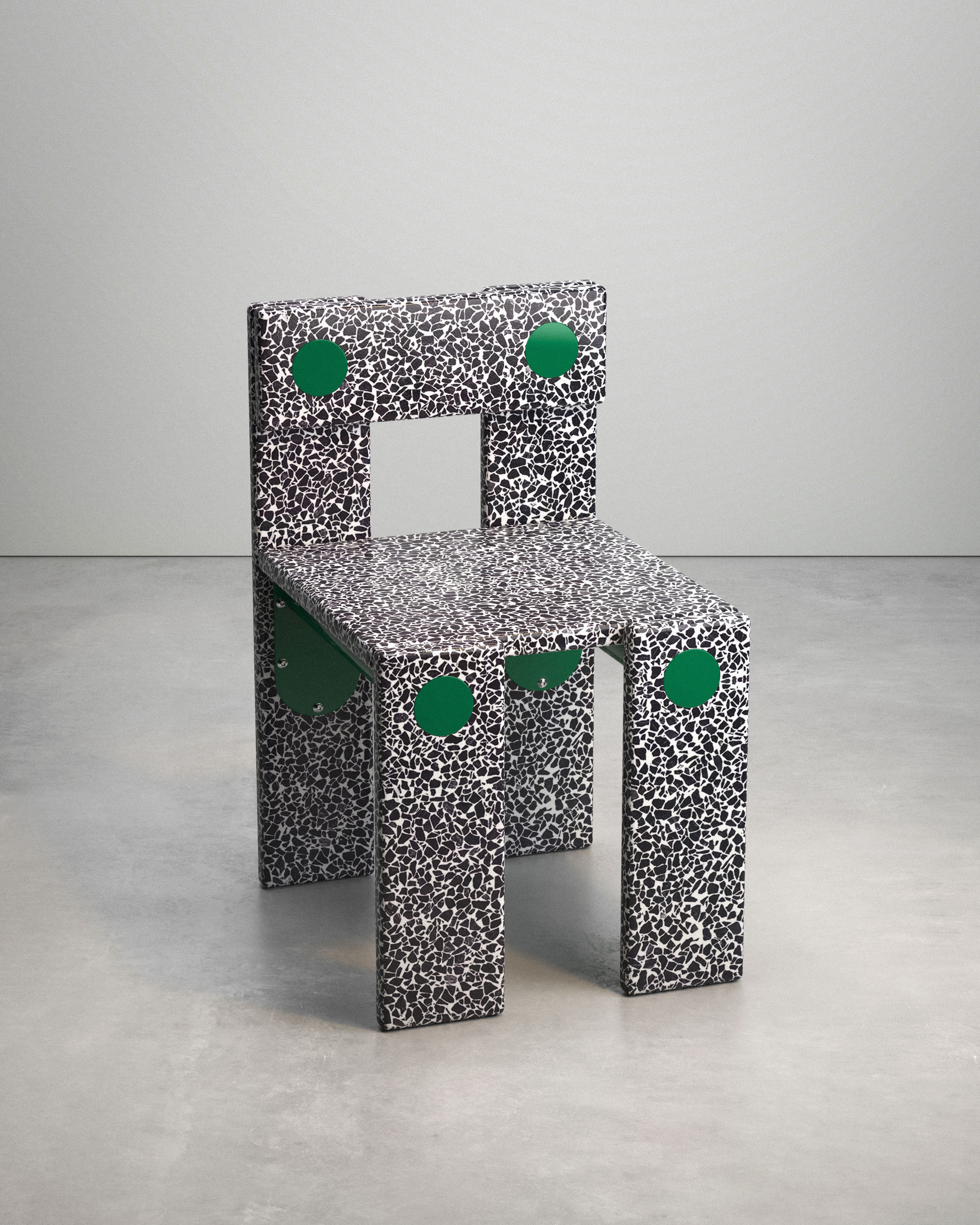
The pieces come in six colour combinations, including black and white terrazzo teamed with apple green metal and a more offbeat pairing of ochre and bubblegum pink. 'Some combinations are more accessible, while others are more punk for those who like adventure,' he says. 'I use contrasting colours that identify elements and their functions in my designs.'
The brightly hued aluminium rods strengthening the chair’s legs draw attention to and celebrate their functionality. All metal parts are fixed to the furniture by chemical and mechanical means, says Authié: 'Holes are first milled into the terrazzo slabs. Threads are inserted through the holes and an adhesive resin is used to strengthen the joints between the terrazzo and powder-coated metal elements when the latter are bolted on.'
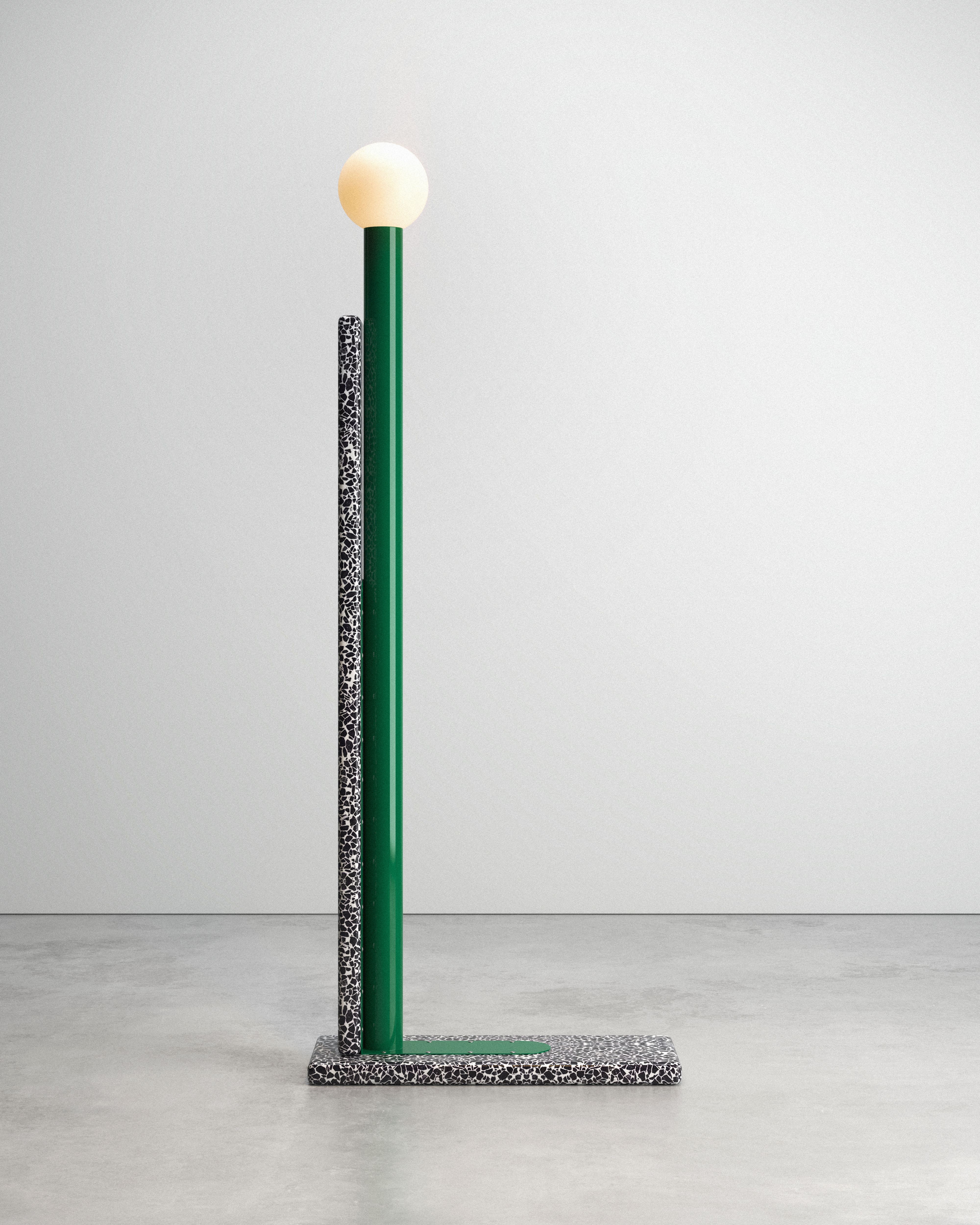
The biggest challenge for Zyva Studio was ensuring the furniture is fully functional and stable, says Authié. 'Terrazzo is a massive, very heavy material requiring significant support. So it was important that all elements were as light as possible. We started out using 30mm-thick terrazzo but reduced this to 20mm-thick slabs. We used lightweight aluminium for all the metal elements.'

Says Mosaic Factory’s creative director Louisa Alice, 'Our decision to take on Zyva Studio’s proposal was partly driven by an innovative, ultra high-performance mineral binder we’ve developed, used to make the terrazzo, which makes it stronger. The binder has opened up new possibilities, allowing us to create furniture and other objects made of terrazzo.'
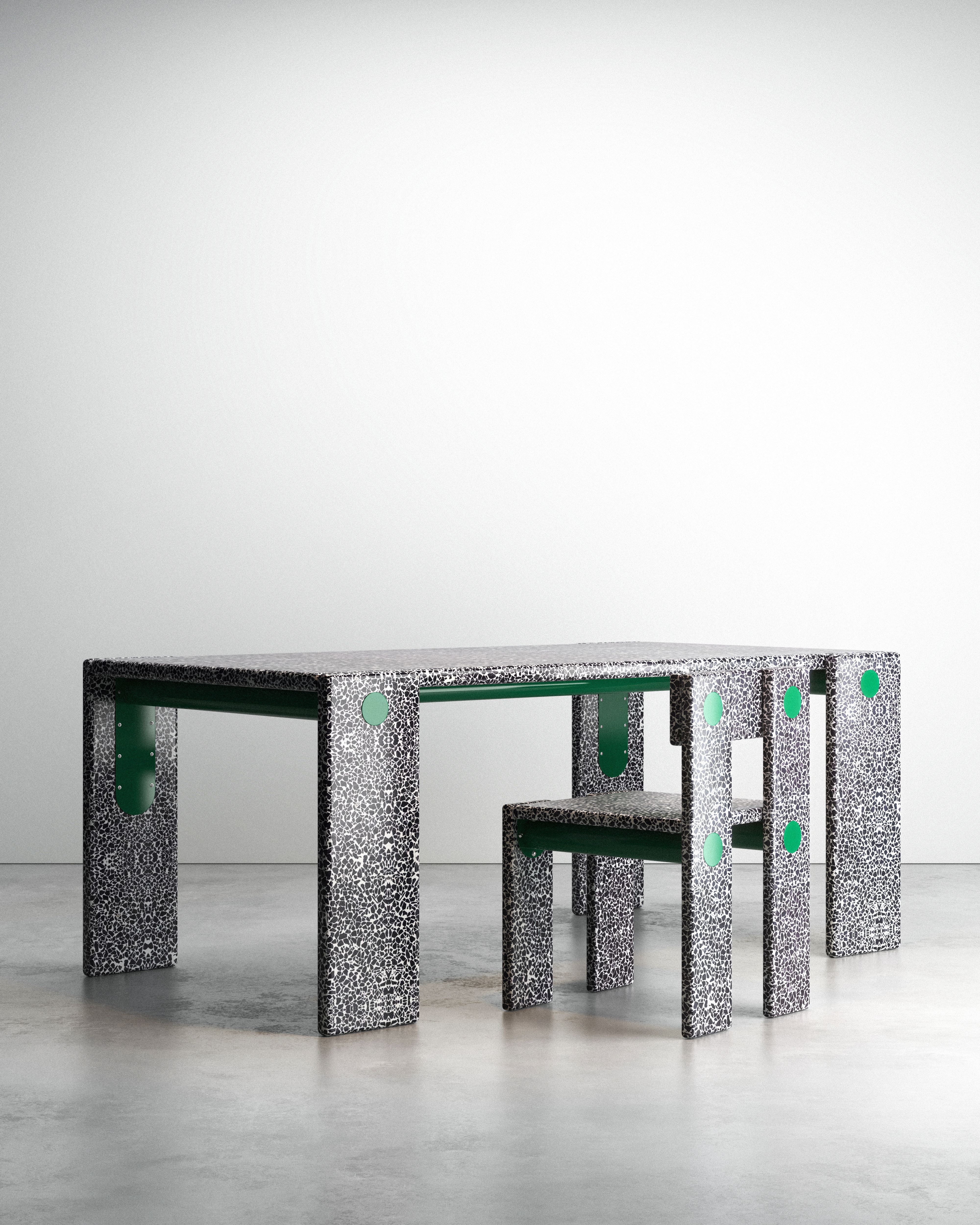
Authié sometimes incorporates boldly patterned terrazzo into his characteristically out-there, colour-saturated interiors, and this collection echoes his non-conformist approach to design. The influence that the imaginative, surreal world of cartoons has on him can’t be understated.
'Cartoons have had a strong impact on my imagination because they twist reality, taking us into a world where everything is exaggerated,' he says. 'I welcome this kind of augmentation of our world and daily lives because it allows for so much creative freedom.'







